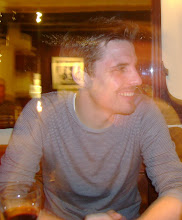Words are amazing. We make up sounds to identify and explain something, to make it comprehensible to others and to ourselves, to pass on what we know. But once that noise is made for the first time it begins to change itself. The word takes on a life of its own, mutates, the way it’s spoken, it is translated into other languages, even the idea it contains changes. As such, they are amazing sources for digressions…
‘Academic Qualifications’. Anyone who has written a CV has written these two words. They normally are normally followed with a stream of exam results going back way into childhood. I used to manage a bar and regularly advertised for staff. Reams and reams of paper would come in listing, in great detail, the exam results of the applicants. The information was absolutely useless to me. Why did I need to know that the applicant received an A* in chemistry five years ago? When confronted by such CVs left for me I used to ‘file’ them and then hire someone who came into the bar and had a conversation with me.
My mother is fond of saying “You have such love for academia” (not as a standalone statement, more a couplet with “Have you thought about going back to University?”). In her mind she connects my love of knowledge and natural curiosity with what make sense in hers, i.e. that I should use this knowledge in the traditional environment (and, although she never says it, eventually get a ‘proper job’).
The origin of both these words is ‘Academy’. Specifically, the ‘Academy of Plato’ (4th Century B.C.E. Greek philosopher) and as a child I remember being told that this was the first school. Now I know that Plato’s Academy was as similar to a modern school (or University) as the Roman Circus is to the big top and clowns of today…
The Academy was a garden just outside Athens used for gymnastics (wrestling, running) from around the 6th century B.C.E. Founded around sacred olive groves and the site of temples and festivals. A river had been diverted and the area walled in turn the once arid area into something resembling a modern park. Plato himself owned a house and garden in the area and after 387 B.C.E. his ‘Academy’ came into being. It was an informal gathering with no curriculum and no distinction between teachers and students. No specific doctrine was taught, rather problems were posed to be studied and ultimately solved. Lectures were given, but the preferred method was the ‘dialectic’ or dialogue. Two (or more) members, who held some ideas, meanings and principles in common, tried to persuade the other over their differences through conversation and debate. Truth was the ultimate value and logic was considered the highest skill.
Rather than a teacher, Plato’s influence has been described as that of an intelligent critic, bringing together disparate figures to discuss and debate. His work heavily features such conversations, with the dialogues taking place not only on visits to the gymnasium, but also on a stroll outside the city gates, a visit to the prison and a wealthy man’s house over drinks, during everyday activities.
This is the love of knowledge I have. Not one of relentless regurgitation, lecturers who are more interested in getting published than teaching and fellow students who are working just hard enough to get that job in the city when they graduate. Learning should be out in the world, conversations between two different people who hold certain ideas in common but disagree on others. An active process. You take away from a conversation like that much more than from any lecture.
Amusingly the idea of academia being too focused, of not ‘being in the real world’, has lead onto another mutation in meaning. When something is ‘academic’ it’s considered “not practical, realistic, or directly useful”. The original Academy was something much more than academia today and it’s results, like you’re ability to be perfect for a job, are not quantifiable on a piece of paper.
Sphere: Related Content
16 years ago






i agree words are truly amazing
ReplyDelete